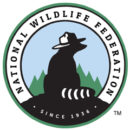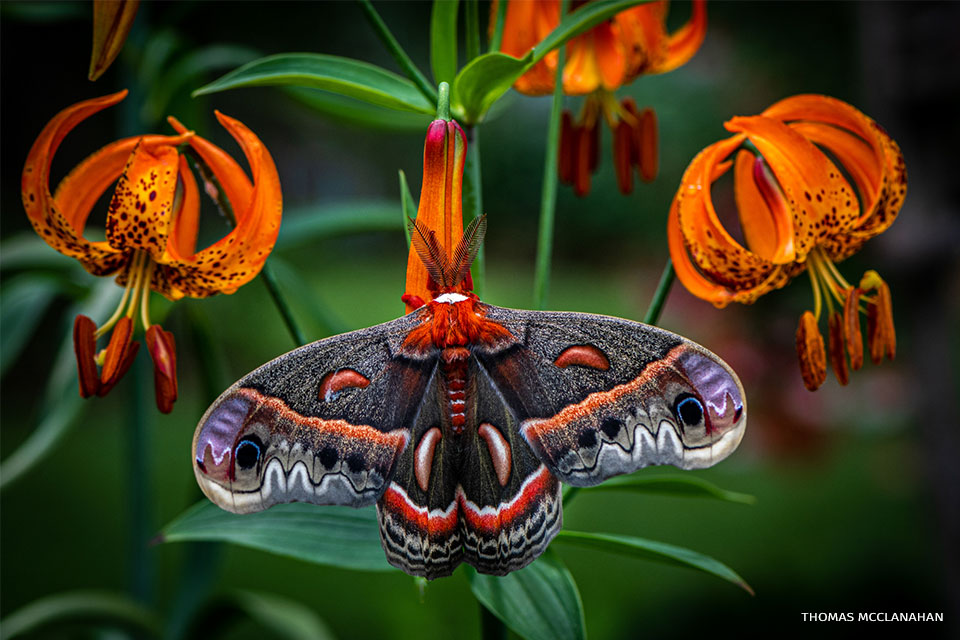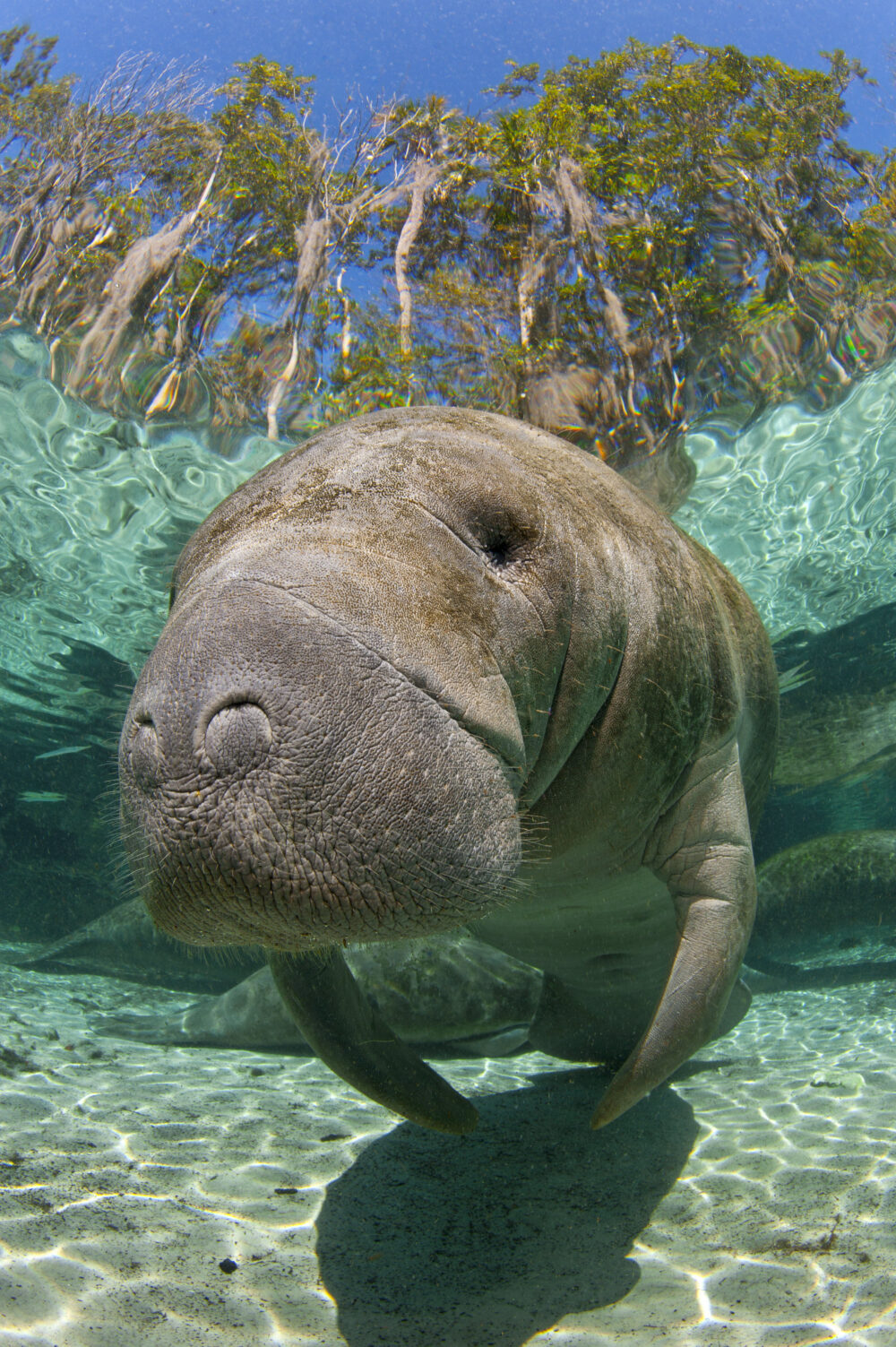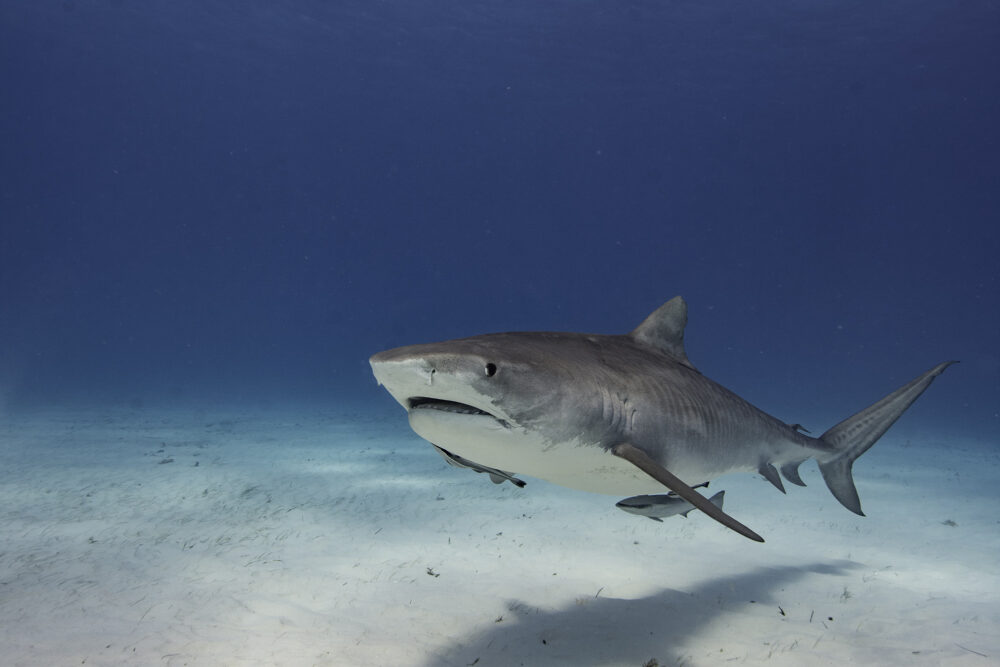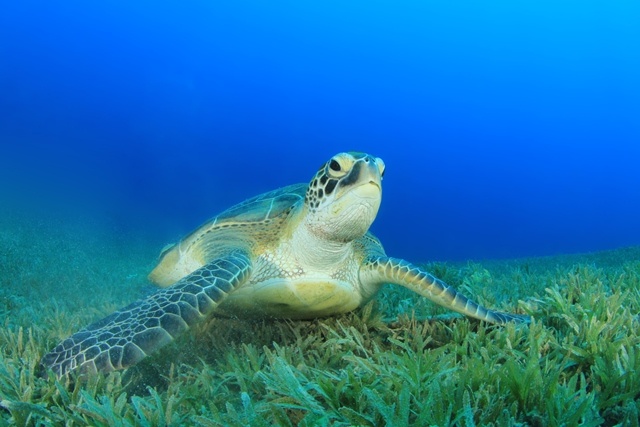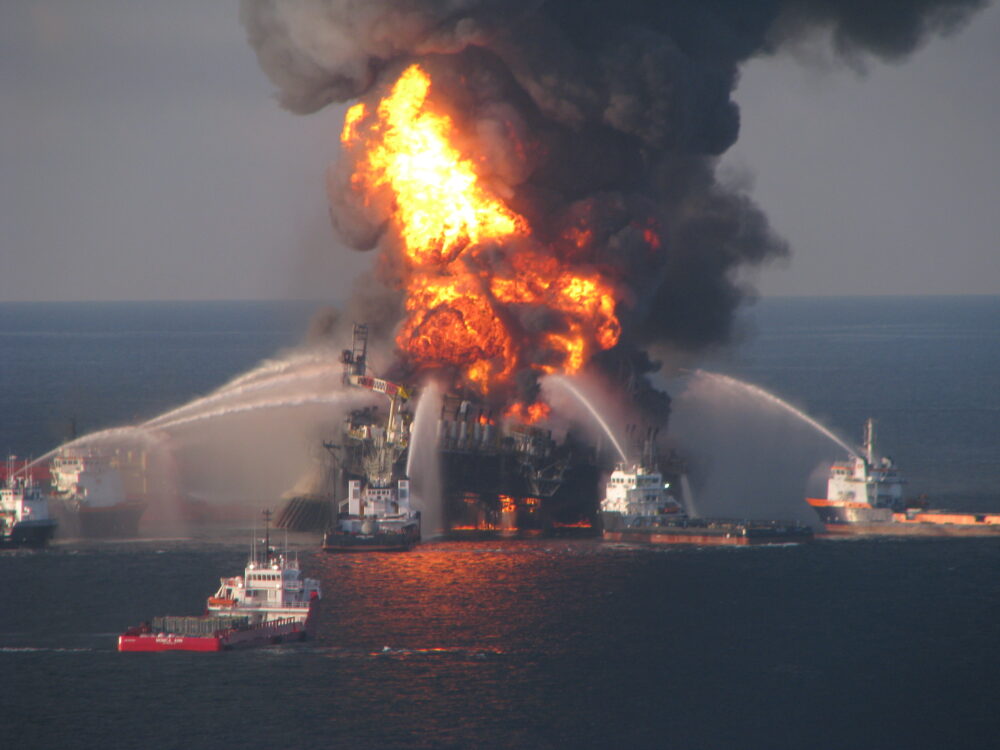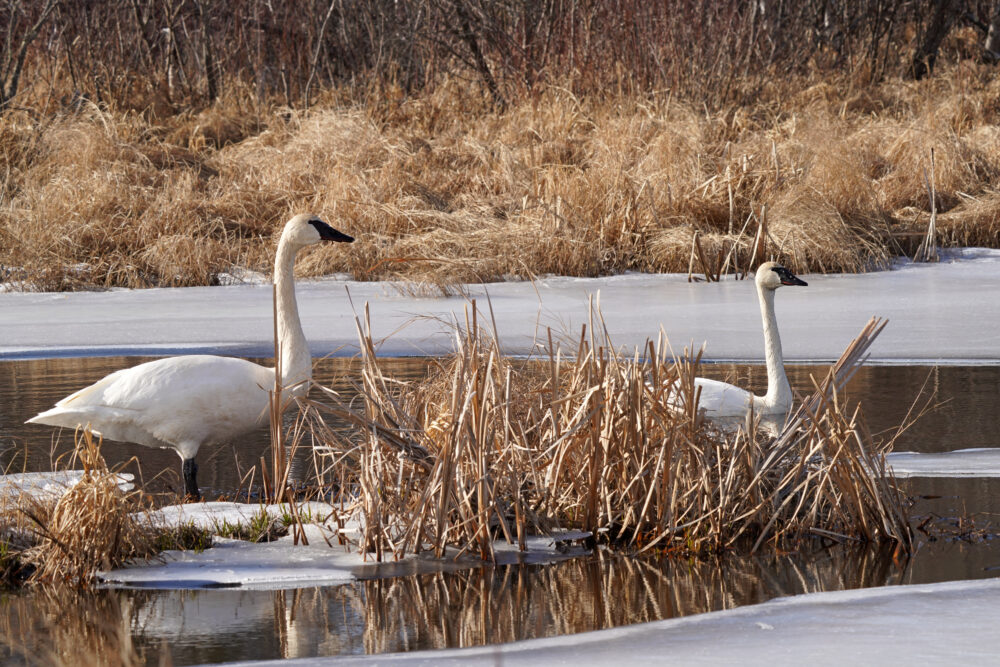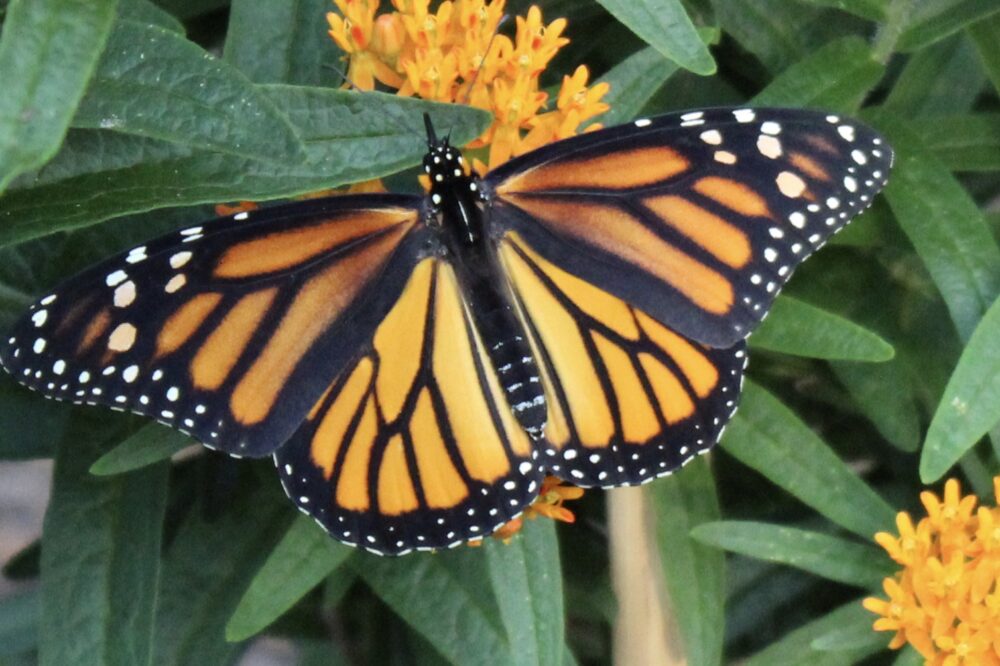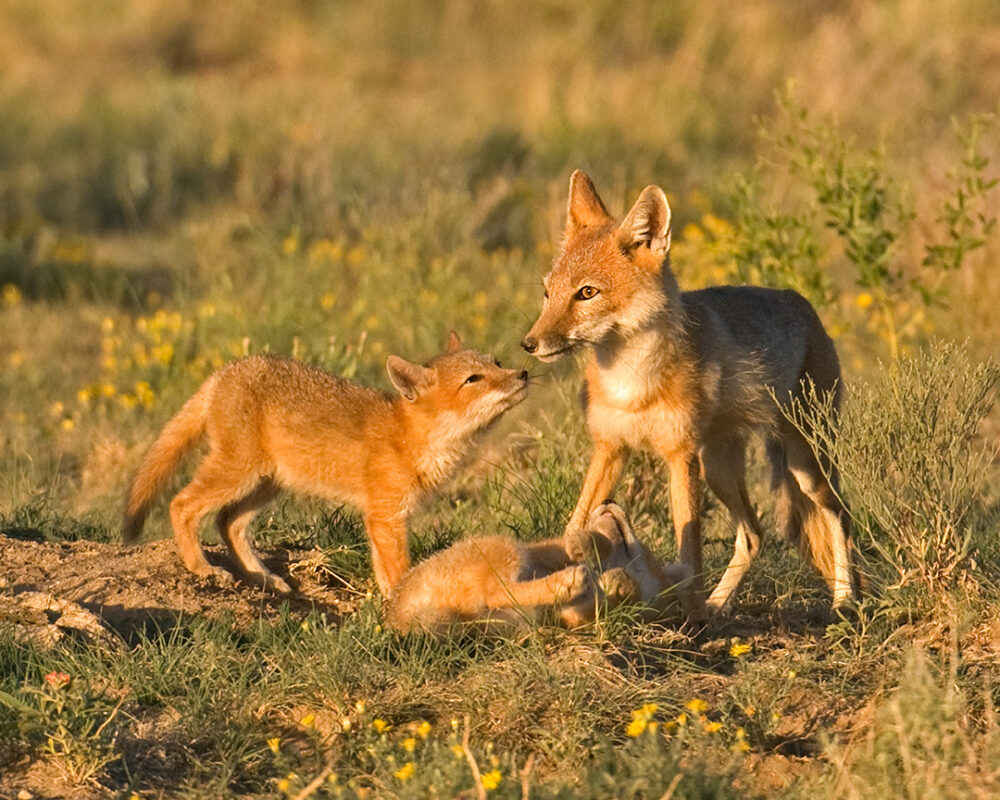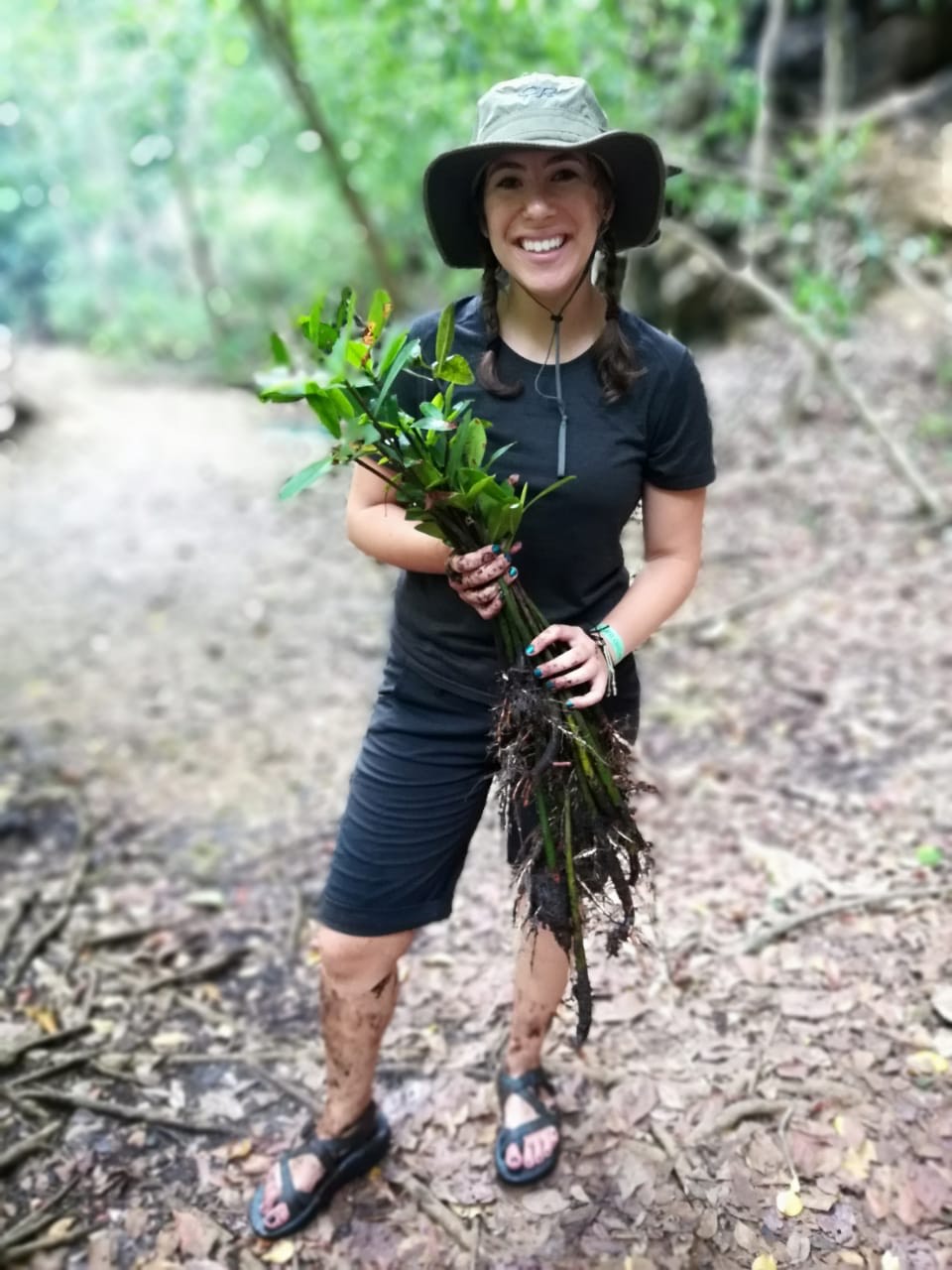We have much more to do and your continued support is needed now more than ever.
LGBTQ+ Young Leaders in Conservation
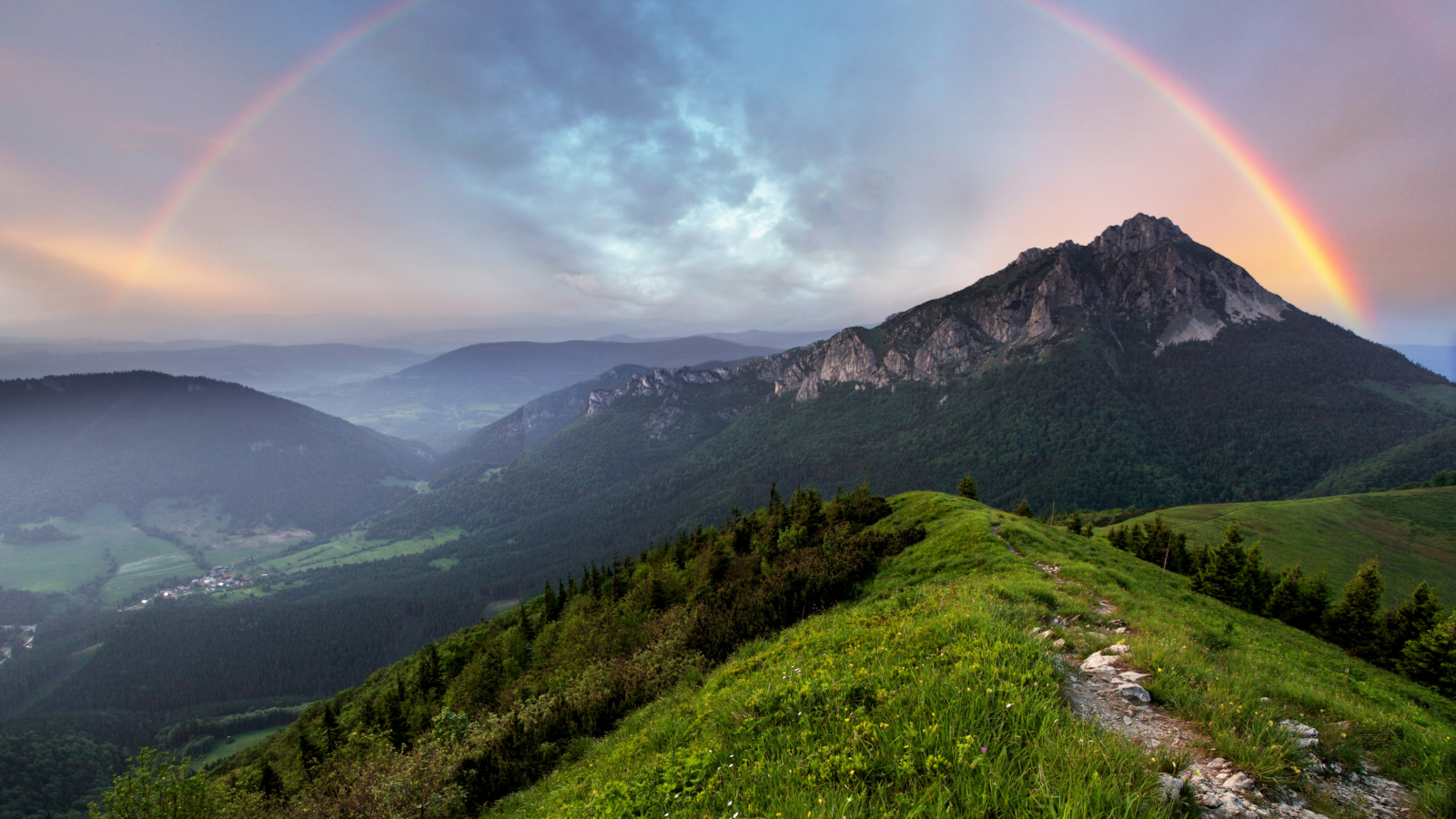
The National Wildlife Federation recognizes the importance of diversity and inclusion in our work and in the conservation movement at large. The participation and leadership or marginalized and previously excluded communities, such as LGBTQ+ people, must be championed and nurtured in the effort to protect the planet, conserve resources, and save wildlife.
Each June, NWF observes Pride month by celebrating the contributions of our LGBTQ+ staff and colleagues, and this year, we also find inspiration and hope in the next generation of LGBTQ+ conservation leaders.
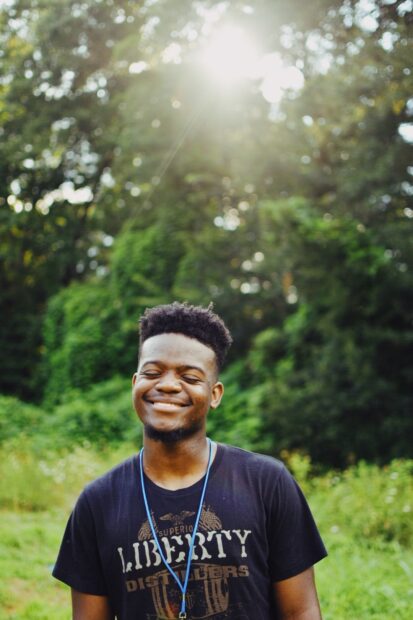
Josh Bellamy
Josh Bellamy (he/him) is a conservation leader in Atlanta, Georgia. Josh grew up loving wildlife, but did not have the resources to get directly involved until his teenage years. Since then, he has taken on a variety of volunteer and paid opportunities, including three years as a Conservation Educator at Zoo Atlanta and working with NWF’s Earth Tomorrow program since high school.
As a student at Morehouse College, Josh became Vice President of Morehouse MoreGreen, a student-led organization focused on sustainability, wildlife conservation, and environmental justice. He created initiatives that educated and invited People of Color into the field. His leadership led to collaboration with Georgia Audubon, as well as becoming a chapter of Audubon on Campus.
What sparked your love of nature and wildlife?
I think at a very young age, it was dinosaurs that sparked my interest in nature and wildlife—finding out they went extinct really put a drive to help maintain and save what we have now! Anyone who knows me knows animals were a big thing for me, and anything I did was related to that—I wanted to be a paleontologist—that later turned into a veterinarian, and eventually landed myself in conservation.
All those careers were in some way to learn about animals and how to save them; I think now I really want to be the voice behind that drive to influence others to join the conservation fight.
How has your identity and the communities to which you belong (i.e., LGBTQ, BIPOC, youth, etc.) impacted how you navigate the environmental movement and the outdoors?
I believe in some ways it has been both a benefit and a stifle—being represented is a good thing, but being in the room without a voice is not what we are striving for. I have noticed for some organizations occupying roles with POC and queer voices are more so to check off on a list than to give these demographics a platform to be heard and considered.
In my experience, my identity has helped me get into the room where conversations are being had, but I haven’t been able to be heard just yet.
Who are your role models or inspirations in the queer community and in the environmental movement?
Personally, I haven’t seen a lot of representation of queer individuals in my field—not to say that they are not out there. Growing up, I didn’t have queer role models to look up to, especially in my field. However, within the environmental movement, I can name Dr. Na’Taki Osborne Jelks and Crystal Jennings as my biggest inspirations and role models.
A lot of what I know and came to be was through their teachings and guidance. I think now that I am able to work for companies that align with conservation and advocacy; I hope to be that inspiration for young Black, queer individuals.
What does Pride mean to you?
Pride is being able to be your authentic self no matter what environment you find yourself in. No matter the opposition or negative energy surrounding you, you remain firm in who you are and what makes up you! Pride also means, for me, the ability to accept you for who you are—a lot of times we are looking for acceptance from other people when we should be loving ourselves without the opinions of others.
Accepting your own identity is very important because people can say a whole lot about you as a person and if you do not know yourself then negative attitudes will hold more weight. In short, love yourself to spread love to other people!
What is your best Pride story?
I think my Pride story would have to be when I was in middle school. I had a very hard time being the only openly queer individual in my grade (or school) and was bullied because of it; although, one day I told myself that I was no longer going to cry or allow someone to make me feel less than.
I understood that I was different, and it was in my difference that I discovered my strength, a lot of the time people fear what they do not understand—I no longer looked for someone’s acceptance to occupy a space, if you didn’t like me without knowing me, I never gave you the time of day—I just did me. My parents were a big drive in learning to love and stand up for myself, it is an ongoing lesson but an important lesson as you matriculate into adulthood.
What are your hopes and your goals for the future?
My hope for the future is that as a people we are doing more than just placing POC and queer individuals in placeholder positions. The fight for conservation is not for one group or power, as it affects everyone whether you are rich, poor, black, white, heterosexual or queer. There should not be a majority vs minority in a movement that is meant to better the world—we should ask ourselves who we are trying to help, and if that community is not mixed regardless of background then we are not on the same mission.
Equality is shared access to opportunities, and I am hoping the future will hold more accessibility to individuals who historically have not received equal access.
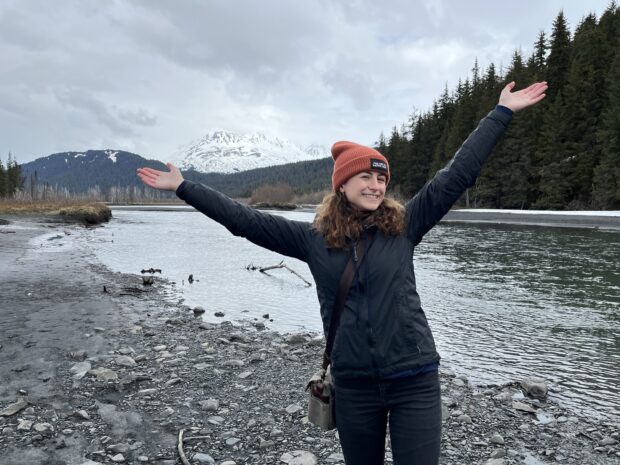
Coral Avery
Coral Avery (they/them) is a 26 year-old queer and gender-nonconforming person. They are a Shawnee Tribal citizen of Shawnee and mixed-European heritage who grew up in Kumeyaay Lands of San Diego County. They are now based in the Pacific Northwest where they graduated Oregon State University as a first-generation college student with a dual Bachelor of Science in Human Dimensions of Natural Resources and Sustainability.
Today, they work full-time for the Bureau of Indian Affairs branch of Tribal Climate Resilience and the Northwest Climate Adaptation Science Center. Outside of work, Coral enjoys photography, beadwork, multimedia art, travel, gardening, volunteering, and a variety of outdoor activities.
What sparked your love of nature and wildlife?
At the age of 4, I was diagnosed with leukemia, so during treatment, I would enjoy any chance to go out to the hospital garden and enjoy the fresh air and songs of birds. After treatment, growing food with my grandpa and sister really built my connection with nature, and from there, I began to notice climate change take its toll in my community. Drought and wildfires engulfed southern California in 2007 and many times since, forcing my family to evacuate several times and nearly lose our home.
Growing up, I spent even more time on the land and pursued volunteer opportunities, internships, classes, and jobs all centering environmental science, land management, and climate adaptation.
How has your identity and the communities to which you belong (i.e., LGBTQ, BIPOC, youth, etc.) impacted how you navigate the environmental movement and the outdoors?
My approach to environmental work, like my identities, is intersectional. All of my identities, and the experiences I’ve had because of them, have encouraged me to educate myself on the systemic causes of my own privileges and marginalization as well as the ways in which harms are perpetuated through conservation practices and the larger environmental movement.
I consider myself a lifelong learner grounded in systems-thinking and value reciprocity above all else, building collaborative space in intersectional environmentalism that focuses on equity, community, and long-term adaptable solutions.
Who are your role models or inspirations in the queer community and in the environmental movement?
Some of the activists who have inspired me over the years are Autumn Peltier, Jolie Varela, Pinar Ates Sinopoulos-Lloyd, Xiuhtezcatl Martinez, Mari Copeny, Severn Cullis-Suzuki, Isaias Hernandez, and Tori Tsui. Many more though are folks I have met over the years in environmental justice and climate advocacy spaces, whether in-person or online, through activism or through my profession, but many do the work at scales large and small without fame or recognition.
Whether they realized it at the time or now, my family were the first who got my started on my current path—not everyone considers themselves an environmentalist, but even the small day to day practices and passing on values of community care is environmental work.
What does Pride mean to you?
There is far too much in this world that keeps us from showing up with all of our identities, whether that shows up as systemic oppression, unintentional microaggressions, or feeling stifled by social norms. Pride means living my truth and celebrating others who do so, at any and every point in their journey.
What are your hopes and your goals for the future?
I work to honor the legacy of generations past and work towards a better future for generations to come. My goal is to continue to work towards building positive reciprocal relationships between different groups of people as well as between people and nature.
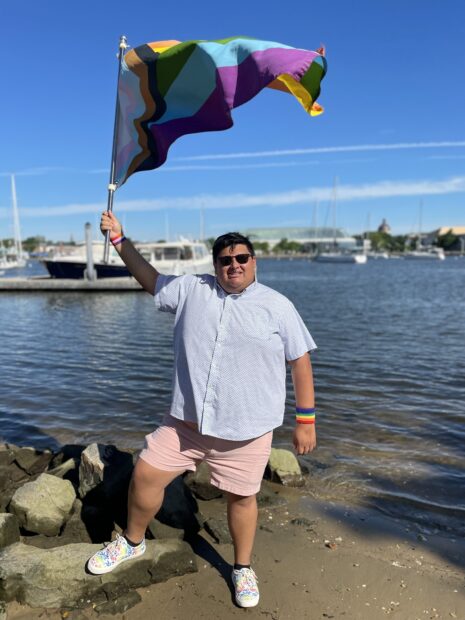
Joe Toolan
Queer, Latinx, Indigenous, Transracial International Adoptee, and Environmental Advocate; Joe (he/him) brings all his identities and lived experience to the work he does. Joe currently leads 4 grant programs and the Diversity, Equity, Inclusion, and Justice (DEIJ) work in the Chesapeake as Manager of Chesapeake Bay Programs at the National Fish and Wildlife Foundation.
Joe also leads LGBTQ+ visibility and advocacy work as Chair of Annapolis Pride and Chair of the LGBTQ Affairs Commission for the State of Maryland.
He earned his bachelor’s degree in Geographical Sciences with a concentration in Environment Systems and Natural Resource Management from the University of Maryland in 2018 and an Executive Certificate in Nonprofit Management from Georgetown University in 2022. “Outside” of his other work, Joe is likely listening to music, reading, talking about fascinating cheeses, or advocating for adoption reform.
What sparked your love of nature and wildlife?
As a young child, I was lucky and privileged to grow up in a house on 3 acres of forest near the bay. I grew up navigating challenges as one of the only People of Color, and queer people in my community, and it did not feel safe… but nature did.
I loved going out into the woods and being alone, I loved going out on the bay and watching the birds and crabbing with my dad. I knew that out in nature, I could be myself, and be okay. Nature does not judge or push me to conform to society’s norms.
How has your identity and the communities to which you belong (i.e., LGBTQ, BIPOC, youth, etc.) impacted how you navigate the environmental movement and the outdoors?
In the environmental movement there is still continued data that shows that People of Color are not as represented in the movement. Hispanic/Latinx people are only about 10% of the environmental workforce according to Green 2.0. When I show up at regional environmental conferences, I may be one of a handful of people of color and one of a handful of queer people.
My lived experiences tell me that I do not belong in these spaces; however, I know that means that my voice is needed for those of us who are not represented. Showing up in outdoor spaces which tend to be heteronormative and white, it can also be difficult, but there are groups creating safe spaces for all, like Pride Outside for example.
Who are your role models or inspirations in the queer community and in the environmental movement?
One of my biggest inspirations in the queer community continue to be women like Sylvia Rivera and Marsha P. Johnson who always fought for their community, even when they were told not to. It is because of strong transgender women like them that the movement for rights has started, and I can honor them by continuing to fight, and show up in these spaces.
In the environmental realm, I look to strong leaders of color like Vernice Miller-Travis who have fought and continue to fight environmental injustices and show people like me, young people of color, that there is space for them in the movement.
What does Pride mean to you?
Pride for me, is such a broad term, to try and capture it all, for me, it is to be able to show up, authentically as myself in all spaces of my life. Pride month is a time to celebrate those small wins and successes from our community, acknowledge those we have and continue to lose due to the many challenges faced by our community, police brutality, AIDS, suicide. Etc. and continue fighting for future generations.
What are your hopes and your goals for the future?
My hopes are that everyone is able to see themselves out in nature and doing the work to protect our earth. I hope that by showing up, I am able to make space for other young queer People of Color in our movement.
I also hope to be able to continue challenging the status quo in the work I do. There is a lot of learning and growing on the horizon for me.

